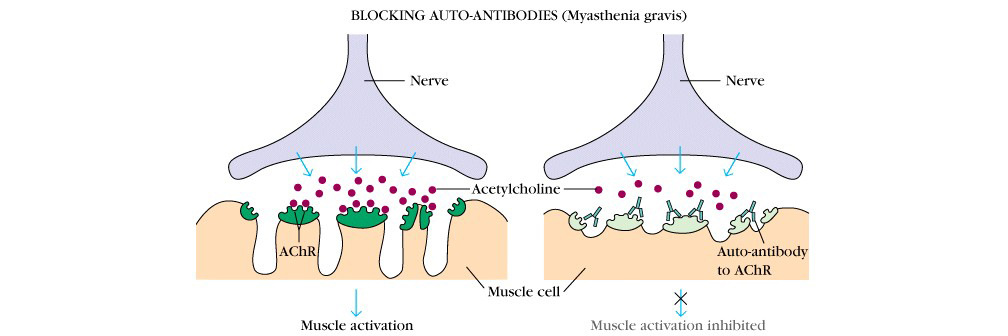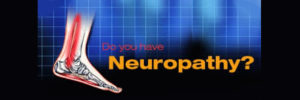
Myasthenia gravis is an autoimmune disorder that disrupts nerve signals to the muscles. The disease causes periods of muscle weakness due to the loss or dysfunction of receptors for acetylcholine, the nerve chemical involved in movement.
An autoimmune disorder involves the attack of the body against its own tissue, due to the overproduction of certain antibodies. In myasthenia gravis, the body attacks acetylcholine receptors in an area of the brain involved with movement. It is not known what causes the overproduction of antibodies that leads to this attack.
The disease is more common in women, and usually develops between 20 and 40 years of age. However, myasthenia gravis may occur in both sexes at any age.
Symptoms
Muscle weakness after exercise is the most common symptom
of myasthenia gravis. In most cases, the disease eventually affects
muscles in the eye (ocular myasthenia), causing double vision (a common
early symptom). Some people may experience changes in voice, coughing
fits, choking, and difficulty swallowing. Depending on the severity of
the disease, episodes of muscle weakness and other symptoms may last
for minutes or hours.
Diagnosis
Diagnosis may be confirmed with a combination of blood
tests and electrodiagnostic studies that measure nerve and muscle
function.
Treatment
A variety of treatments, including steroids, plasma
exchange (cleansing the blood), and surgery may be used to increase
strength, suppress disease activity, and stop disease progression.



